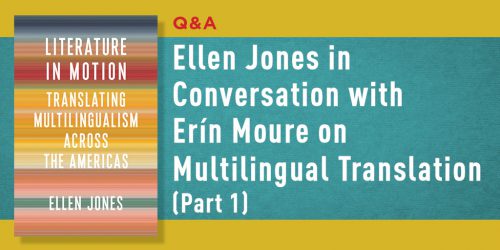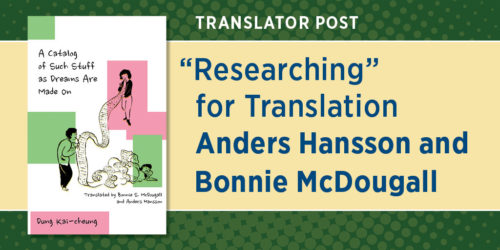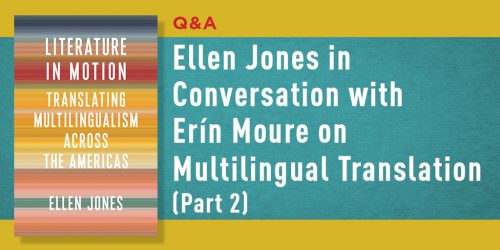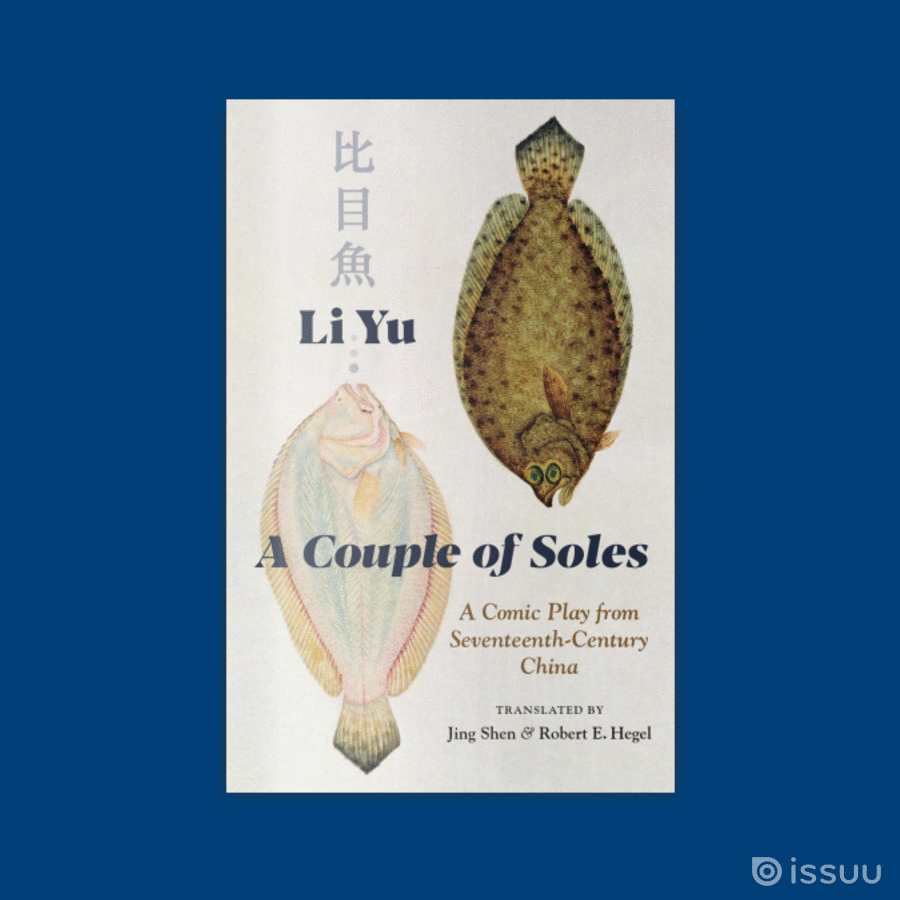National Translation Month 2022! A Journey Through Time and Place
Claire Brown
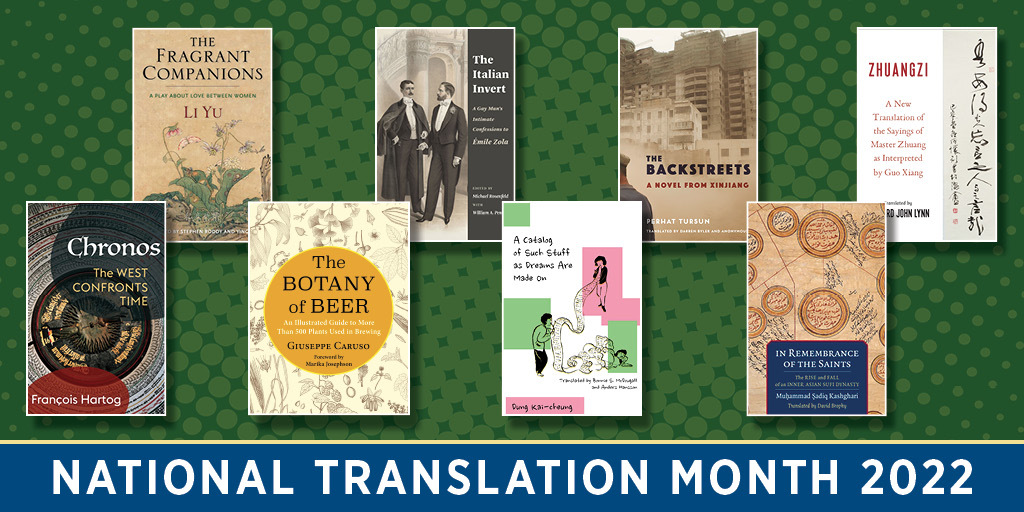
Welcome to our annual celebration of National Translation Month 2022! Ten years ago, two incredible women, author and journalist Loren Kleinman and poet and translator Claudia Serea, founded National Translation Month. Understanding language as an essential instrument for expressing the human experience, they were also aware that language could present a barrier to communication in a diverse world. This September, we invite you to join us on an exploration through time and place as we tour works of fiction and nonfiction from France, Italy, and China.
Week 1: Western Europe’s Conflict with Time and Southern Europe’s Brewing Know-How
We begin our journey in France, where François Hartog emphasizes the uncertainty the world faces in the Anthropocene age. Harnessing knowledge of the past and the future to comprehend the present, Chronos explores how the influence of humanity in this new age will shift the historical experience of understanding time.
Sit down with translator S. R. Gilbert as he explains the respectful relationship between himself and his author as they worked together to move Chronos from French to English, allowing language to turn it into “something new.”
He reveals what it is like to work closely with an author on a translation—and the relief upon receiving approval for small changes. Check in on Tuesday, September 6, to read more about the alliance between author and translator in the modern era!
Next we travel to Italy, where we will have the privilege to converse with Giuseppe Caruso, who explains the complex botanical information and brewing techniques behind beer. In The Botany of Beer, he collects and presents scientifically accurate descriptions of more than 500 species of plants that assist in beer making. A real “what’s what” in brewing!
In his entertaining interview, Caruso, a beer sommelier and botanist, explains how his expertise gave him the opportunity to create this manifesto of beer brewing raw materials.
Check back on Thursday, September 8, to read about this incredible book that demystifies the processes behind America’s favorite drink.
Week 2: The Global History of Same-Sex Love
Continuing our travels in Italy, we explore a rare account of the life of a queer Italian aristocrat. The Italian Invert comprises letters written to Emile Zola. An unapologetically honest and passionate individual, the Italian invert expresses his desires and defends his right to pleasure in a time when same-sex love was not tolerated, much less accepted.
In this piece, translator Nancy Erber shares her years-long history with the Italian invert and her honest thoughts about him.
She divulges the challenges of translating a work centered around a sensitive topic and the specific language changes she made to bring the historical text into the more progressive modern era. Check back on Tuesday, September 13, to learn more about how The Italian Invert was able to enter the twenty-first century.
We will continue our exploration of LGBTQIA+ and gender studies with a trip to premodern China. Written in the seventeenth century, The Fragrant Companions by Li Yu explores the love between two women, whose passion for their intellectual pursuits and each other leads them to find partial success against the social conventions of the era. This historical play illuminates a type of love that is frequently forgotten in traditional history’s conscience.
Translators Stephen Roddy and Ying Wang explain how the rise of LGBTQIA+ activism and an increasing “visibility of sexual diversity” has elevated texts like The Fragrant Companions.
This work has become not only a source for queer history but also a focus for reexamining the importance of that history, a topic of “media discussions and hot debates.” Check back on Thursday, September 15, to learn more about the cultural significance of this beautiful play.
Week 3: Things Don’t Define Us; People Don’t Disappear
Next, travel forward in time to twentieth-century China with A Catalog of Such Stuff as Dreams Are Made On. What is the ephemeral power of things? Taking us back to the 1990s, an era of booming consumerism, Dung Kai-cheung compiles a collection of short stories and sketches through the lens of pop culture phenomena to capture the decade’s changes through things. This magical catalog book will evoke a sense of nostalgia and uncover the temporary objects that we once believed defined our identity.
In their essay, Anders Hansson and Bonnie McDougall share the “research” process behind the translation of the catalog.
Come along to learn how they sought the correct translations of the social and cultural slang in this pop culture-filled book. Check back on Tuesday, September 20, to snuggle into the comfort of the past!
Then we go to the Xinjiang region of China and the fictional world of The Backstreets. Darren Byler, cotranslator of this controversial novel, situates the beautiful story in the political context of the missing author and his work. This astonishing book depicts the frightening truth of what it is to be a Uyghur living under the watchful eye of the Chinese state.
In his piece, Byler explains the purpose behind sharing Perhat Tursun’s writings and why we should pay attention to the current humanitarian crisis of Uyghurs in China.
Check back Thursday, September 22, to learn more about the author’s imprisonment.
Week 4: The Balance Between Translation and Interpretation
We’ll stay in this region with more Uyghur inspiration from In Remembrance of the Saints—an account of the Naqshbandi Sufis and their downfall. Written in prose and verse, it provides context to an incredibly divisive period in history. This translation not only sheds light on Xinjiang’s political and religious traditions but also makes a foundational work of Asian literature available to a greater number of students and scholars.
In his article, translator David Brophy discussed the debate on source criticism and how to interpret Kashghari’s text.
Check back Tuesday, September 27, for more about this historical source and work of literature.
We will cap off the month with Zhuangzi. A new translation of one of the most foundational texts of the Chinese philosophical tradition is elevated by Richard John Lynn with his choice to translate the text and how Guo Xiang read it. With the inclusion of Guo’s commentary, this translation brings keen insights and meaning to a long-respected historical work.
Follow, Lynn’s journey in translating this Daoist classic of timeless wisdom. Check back on Thursday, September 29 to discover the rich interdisciplinary resources offered by the Zhuangzi and Guo’s commentary.
Categories:National Translation MonthTranslation
Tags:A Catalog of Such Stuff as Dreams Are Made OnAnders HanssonBonnie S. McDougallChronosDarren BylerDavid BrophyDung Kai-cheungEmilia ReggianoFrançois HartogGiuseppe CarusoGuo XiangIn Remembrance of the SaintsKosmosLi YuMaster ZhuangMichael RosenfeldMuḥammad Ṣadiq KashghariNancy ErberNational Translation Month 2022Perhat TursunRichard John LynnS. R. GilbertStephen RoddyThe BackstreetsThe Botany of BeerThe Fragrant CompanionsThe Italian InvertUyghurWilliam A. PenistonXinjiangYing WangZhuangzi



